Let's face it, chickpeas are a kitchen hero. They're incredibly versatile, popping up in everything from hearty salads to creamy dips, and even star-studded curries. But for those who haven't ventured beyond the canned variety, dried chickpeas can seem a bit intimidating. Fear not, my friends! I'm here to guide you through the whole shebang, from soaking to cooking, and beyond. This isn't just a recipe, it's a journey into the heart of the chickpea, filled with my personal tips, tricks, and a few tales of triumph (and a couple of cooking mishaps along the way!).
(Part 1) Why Dried Chickpeas?
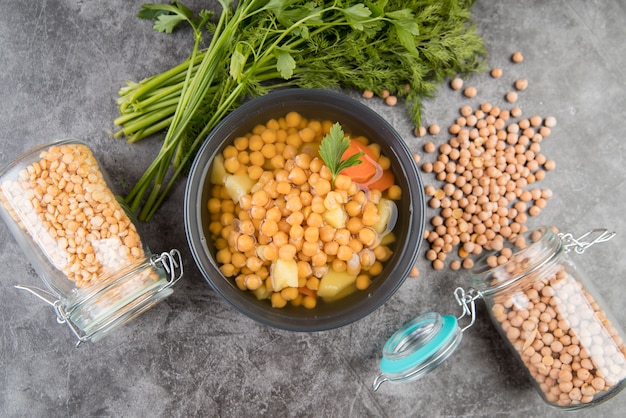
Now, you might be thinking, "Why bother with dried chickpeas when I can just grab a can?" Trust me, there's a world of difference! Dried chickpeas offer a depth of flavour that canned ones simply can't match. They've got a satisfyingly firm bite that adds texture to dishes, and they're much more economical. Plus, you're in control of the sodium content, which is always a bonus. It's also a deeply rewarding experience to transform these humble beans into something truly delicious.
Choosing the Right Chickpeas
Before we get started, let's talk about choosing your chickpeas. Look for plump, uniform ones, free from any discolouration or damage. Organic is great, but not a necessity. I usually grab them from the bulk bins, giving me a chance to really inspect each one. You want to pick out any that look shriveled or have broken bits.
The Importance of Freshness
I can't stress this enough: use fresh chickpeas! They'll have the best flavour and texture. If you're not sure how old they are, give them a sniff. They should have a slightly nutty aroma, not a stale or musty smell. If you're in doubt, it's always better to play it safe and pick a fresh batch.
(Part 2) The Soaking Ritual
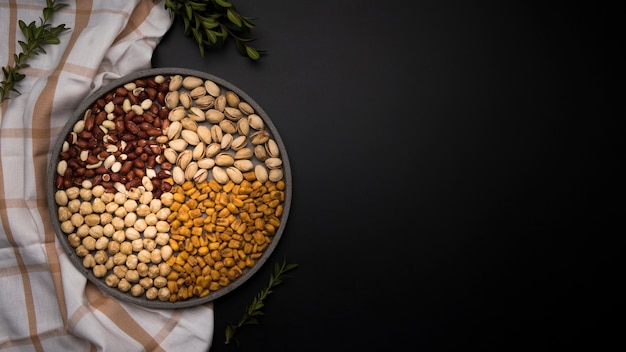
Soaking is absolutely crucial. It softens the chickpeas, making them much easier to cook, and significantly reduces the cooking time. There are different methods, but I swear by the overnight soak. It's simple, requires minimal effort, and gives you time to get ready for the next step.
The Overnight Soak
Grab a large bowl (a big one!), and add your chickpeas. Pour in cold water until it's at least 2 inches above the chickpeas. Cover the bowl with a lid or a plate, and pop it in the fridge. By morning, those chickpeas will be plump and ready to rock.
The Science of Soaking
You might be wondering why the fridge? Well, it's all about temperature. Cold water helps the chickpeas absorb moisture more evenly, resulting in a smoother texture. Also, the fridge helps keep things clean and prevents any unwanted bacterial growth.
(Part 3) Cooking the Chickpeas: The Art of Patience
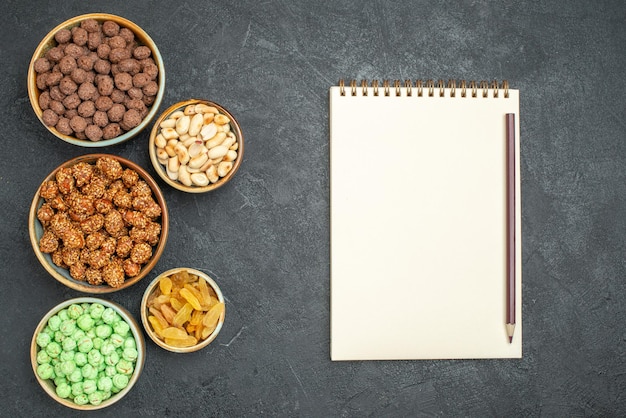
This is where the magic really happens! Cooking the perfect chickpea requires patience and attention. It's a journey, not a sprint. I've learned this the hard way, through countless kitchen experiments. But the results are worth it!
The Perfect Pot
First things first, you'll need a big pot with a lid. A dutch oven or a heavy-bottomed stockpot is ideal. They distribute the heat evenly, preventing sticking and ensuring the chickpeas cook consistently.
The Ideal Cooking Liquid
While plain water will do the job, I like to add a touch of flavour to the cooking liquid. A tablespoon of salt and a bay leaf are my staples. I also like to experiment with other herbs and spices like cumin, coriander, a few cloves of garlic, or even a sprig of rosemary.
The Timing is Everything
Bring the chickpeas to a boil over high heat, then reduce the heat to a gentle simmer. Cover the pot and cook for about 1-1.5 hours, or until the chickpeas are tender but still hold their shape. They should easily mash between your fingers without feeling mushy.
The Test of Tenderness
To check for tenderness, simply scoop out a few chickpeas and try to crush them between your thumb and forefinger. They should break easily. Don't overcook them! They'll become mushy and lose their delicious firmness.
The Importance of a Gentle Simmer
cooking chickpeas over a gentle simmer is key to ensuring they cook evenly and don't split or burst. It's like a slow dance, not a frantic rush. Let those chickpeas cook peacefully.
(Part 4) Drain and Store
Once your chickpeas are cooked to perfection, drain them thoroughly, reserving some of the cooking liquid. I usually save a cup or two, as it's packed with flavour and can be used in soups, stews, or even as a base for hummus.
Storing for Later
Store your cooked chickpeas in the refrigerator for up to 4 days. I like to keep them in an airtight container, submerged in the reserved cooking liquid. This helps keep them moist and prevents them from drying out. They'll be ready for your culinary creations!
Freezing for Longer Storage
If you're planning to store them longer, you can freeze cooked chickpeas for up to 3 months. Simply spread them out on a baking sheet to freeze individually, then transfer them to a freezer-safe bag. This prevents them from sticking together when you're ready to use them.
(Part 5) The Versatile Chickpea: A World of Culinary Possibilities
Now, let's talk about all the amazing things you can do with your perfectly cooked chickpeas! They're truly a blank canvas for culinary creativity.
chickpea salad Sandwiches: A Simple Classic
This is my go-to quick lunch! Mash some cooked chickpeas with a little mayonnaise, Dijon mustard, and chopped celery or onion. A sprinkle of paprika and a squeeze of lemon juice add a bit of zing. You can add a few chopped walnuts or pecans for some crunch.
Hummus Heaven: A Chickpea Masterpiece
Hummus is a chickpea's crowning glory! It's simple yet delicious, perfect for spreading on bread, dipping vegetables, or even topping salads. It's a versatile, flavour-packed dip that's always a crowd-pleaser.
Chickpea soup: A Comforting Classic
Nothing beats a hearty chickpea soup, especially on a chilly day. It's a comforting classic that can be customized with your favourite vegetables and spices. Add lentils, barley, or even a dollop of yoghurt for extra richness.
chickpea curry: An Explosion of Flavour
Indian cuisine is a master of the chickpea. It's a key ingredient in many curries, blending seamlessly with spices, coconut milk, and vegetables. The results? A flavour explosion in your mouth!
chickpea fritters: A Lighter Option
For a healthier snack, try chickpea fritters. Mash the chickpeas with a few herbs and spices, form them into patties, and pan-fry until golden brown. They're delicious! Serve them with a side of your favourite dipping sauce.
(Part 6) Beyond the Basics: Adding Flavour
While cooked chickpeas are amazing on their own, you can take their flavour to the next level by adding herbs, spices, and other ingredients.
Spice It Up
Don't be afraid to experiment with spices! Cumin, coriander, turmeric, paprika, cayenne pepper, smoked paprika - the possibilities are endless! Start with small amounts and add more gradually, tasting as you go.
Herbs for Freshness
Fresh herbs add a wonderful depth of flavour to chickpea dishes. Rosemary, thyme, parsley, dill, mint - they all work beautifully. Add them during the cooking process or sprinkle them on top for a burst of freshness.
The Power of Citrus
Lemon juice or lime juice can add a bright, acidic touch, balancing out the richness of chickpeas. They also enhance the flavour of other ingredients.
Roasted Chickpeas: A Crunchy Treat
For a crunchy snack or side dish, try roasting your chickpeas. Toss them with olive oil, salt, pepper, and any other desired spices. Spread them on a baking sheet and roast in a preheated oven until golden brown and crispy.
(Part 7) Common Mistakes and How to Avoid Them
Like any culinary adventure, there are some common pitfalls to watch out for when dealing with chickpeas. Here are a few tips based on my own experience:
The Overcooked Chickpea
Don't overcook! They'll become mushy and lose their texture. Keep an eye on them and check for tenderness regularly. You want them to be tender but still hold their shape.
The Undercooked Chickpea
It's equally important not to undercook them, or they'll be hard and difficult to digest. Make sure they are cooked through before serving.
Salt and Timing
Salt is essential for flavour, but add it at the right time. Too much salt at the beginning can make the chickpeas tough. I usually add it towards the end of cooking.
Don't Forget the Water
Always use enough water for cooking. The chickpeas should be fully submerged. If the water level gets too low, add more water as needed.
(Part 8) FAQs: Your Chickpea Questions Answered
I've been there, I've asked the questions! Here are some common queries I've encountered, along with my expert answers:
Q1: Can I use canned chickpeas instead of dried ones?
A1: Absolutely! If you're short on time, canned chickpeas are a convenient alternative. However, they won't have the same depth of flavour or firmness as cooked dried chickpeas.
Q2: Can I soak chickpeas in warm water?
A2: It's best to soak them in cold water. Soaking in warm water can activate enzymes that can affect the flavour and texture of the chickpeas.
Q3: Can I skip the soaking step altogether?
A3: You can, but it will significantly increase the cooking time. Soaking helps soften the chickpeas and reduces the cooking time.
Q4: What can I do with the reserved cooking liquid?
A4: The liquid is a treasure trove of flavour! You can use it to make soups, stews, sauces, or even as a base for hummus.
Q5: How long can I store cooked chickpeas in the refrigerator?
A5: Cooked chickpeas can be stored in the refrigerator for up to 4 days, submerged in their cooking liquid. For longer storage, you can freeze them.
(Part 9) Beyond the Plate: chickpea benefits
Apart from being delicious and versatile, chickpeas are a nutritional powerhouse! They're a great source of protein, fibre, iron, and folate. They're also low in fat and calories, making them a healthy choice for any diet.
A Healthier Choice
The high fibre content in chickpeas helps regulate digestion, promotes a feeling of fullness, and can aid in weight management. Their protein content makes them a great addition to vegetarian and vegan diets.
Sustainable Choice
Chickpeas are also a sustainable crop, requiring less water and resources than other protein sources like beef or poultry. They're a good choice for those looking to reduce their environmental footprint.
(Part 10) Chickpea Inspiration: Recipes and Resources
Ready to get cooking? Here are a few resources to inspire your culinary adventures with chickpeas:
My Favourite chickpea recipes
Here's a sneak peek at some of my personal favorites:
- Creamy Chickpea Curry with Coconut Milk
- Classic Hummus with Pita Bread
- Chickpea Salad with Dijon Mustard
- Chickpea Fritters with Herbs and Spices
- Roasted Chickpeas with Paprika and Smoked Paprika
Online Resources
For more chickpea inspiration, check out these websites:
- Allrecipes.com
- Food.com
- Epicurious.com
- The Kitchn.com
Cookbooks
If you're looking for a cookbook with amazing chickpea recipes, I recommend checking out these titles:
- "The Complete Vegetarian Cookbook" by Jane Grigson
- "The Vegetarian Epicure" by Anna Thomas
- "The Hummus Cookbook" by Maria J. Riva
- "The Chickpea Cookbook: 100 Recipes for Your Favourite Legume" by Liz Economou
(Part 11) Final Thoughts
So there you have it, the ultimate guide to cooking dried chickpeas! I hope this has inspired you to give them a try. They are an incredibly versatile, delicious, and healthy ingredient that deserves a place in your kitchen. From simple salads to elaborate curries, the possibilities are endless. Enjoy the journey of discovering the world of chickpeas!
Everyone is watching

Perfect Rice Every Time: The Ultimate Guide to Cooking Rice
Cooking TipsAs a self-proclaimed foodie, I've always been a bit obsessed with rice. It's the foundation of countless cuisi...

Ultimate Guide to Cooking the Perfect Thanksgiving Turkey
Cooking TipsThanksgiving. Just the word conjures up images of overflowing tables laden with delicious food, the scent of r...

The Ultimate Guide to Cooking Asparagus: Tips, Techniques, and Recipes
Cooking TipsAsparagus. The mere mention of this spring delicacy conjures up images of vibrant green spears, crisp and burs...
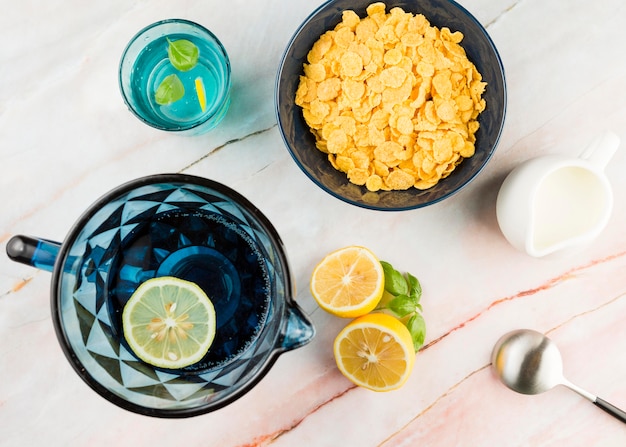
Can You Cook Spaghetti with Gasoline? (The Shocking Truth)
Cooking TipsWe've all seen those crazy internet trends. You know, the ones that make you wonder, "Did someone actually try...
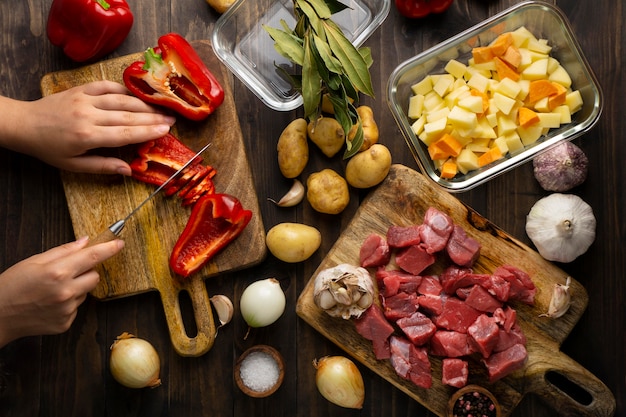
Chorizo and Eggs Recipe: The Ultimate Guide
Cooking TipsRight, let’s talk about chorizo and eggs. You know, that classic Spanish dish that's always a winner. It's th...
